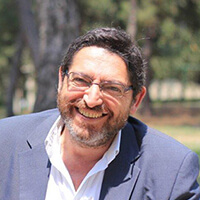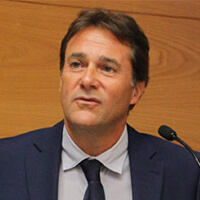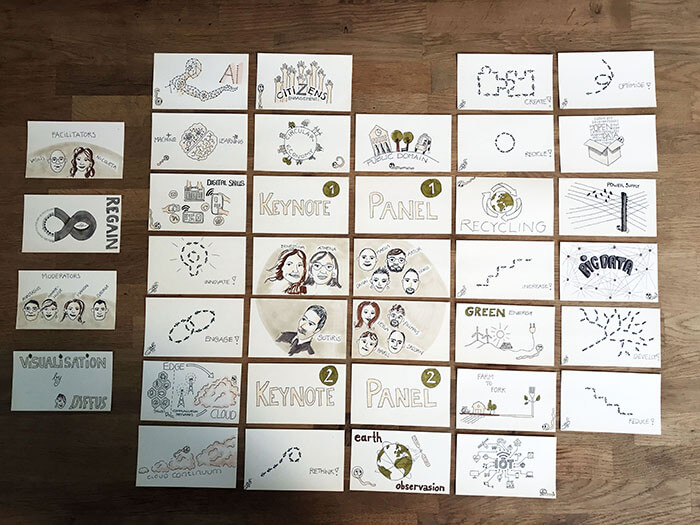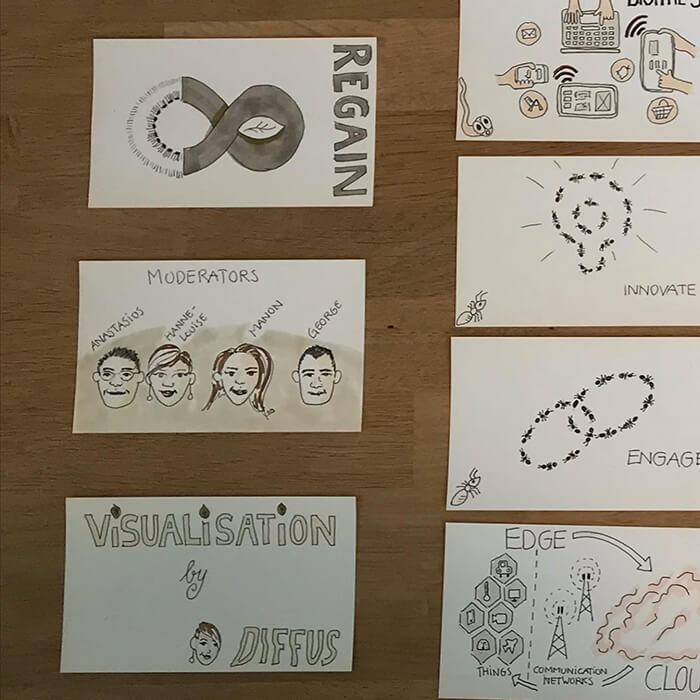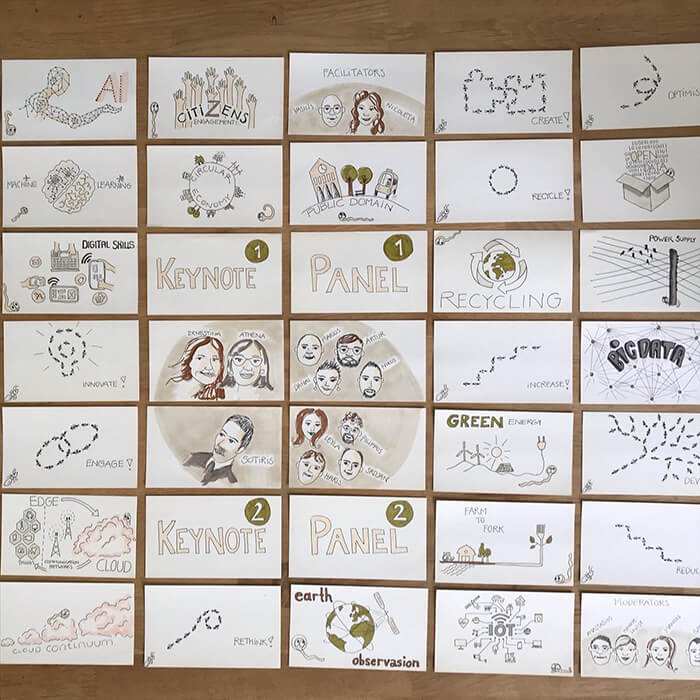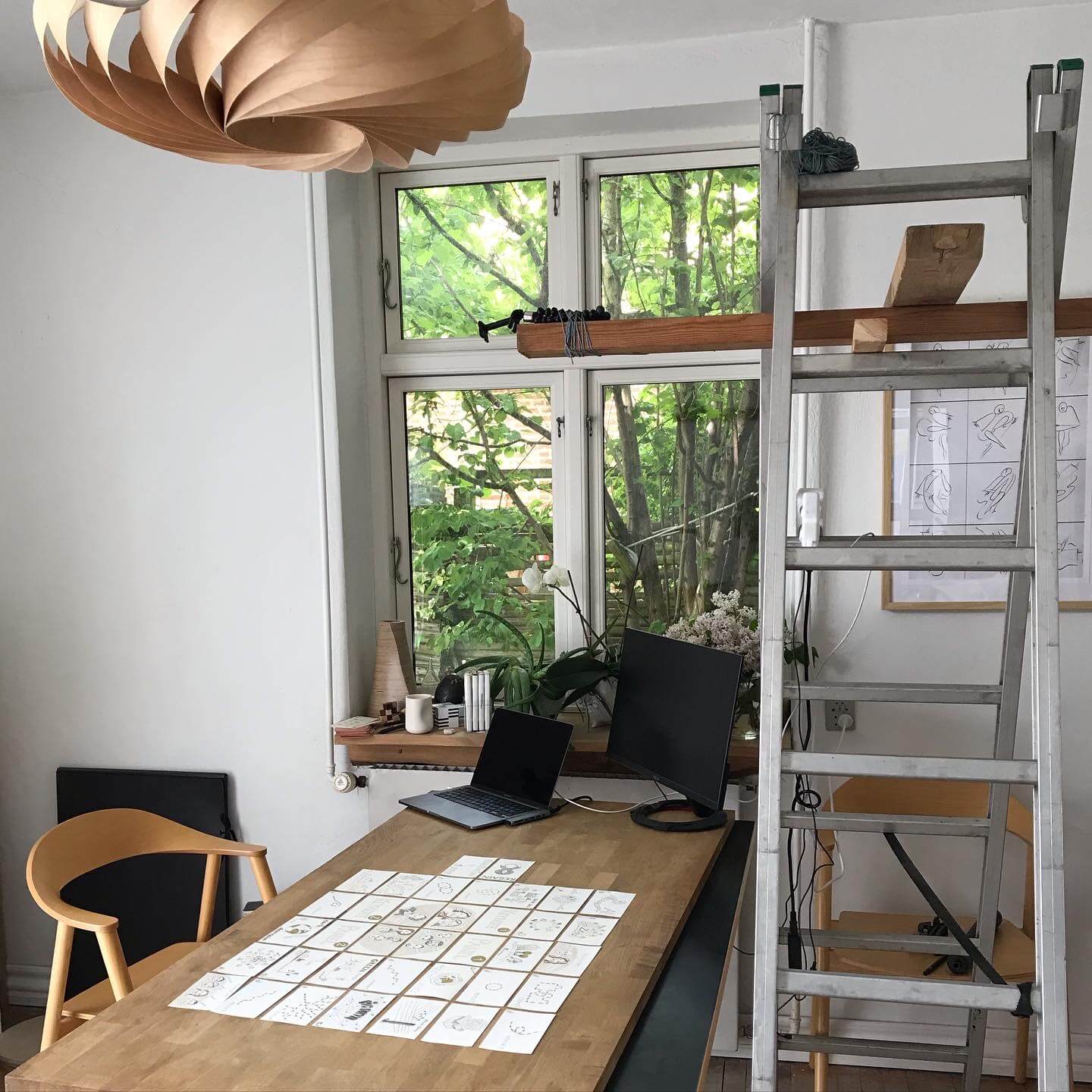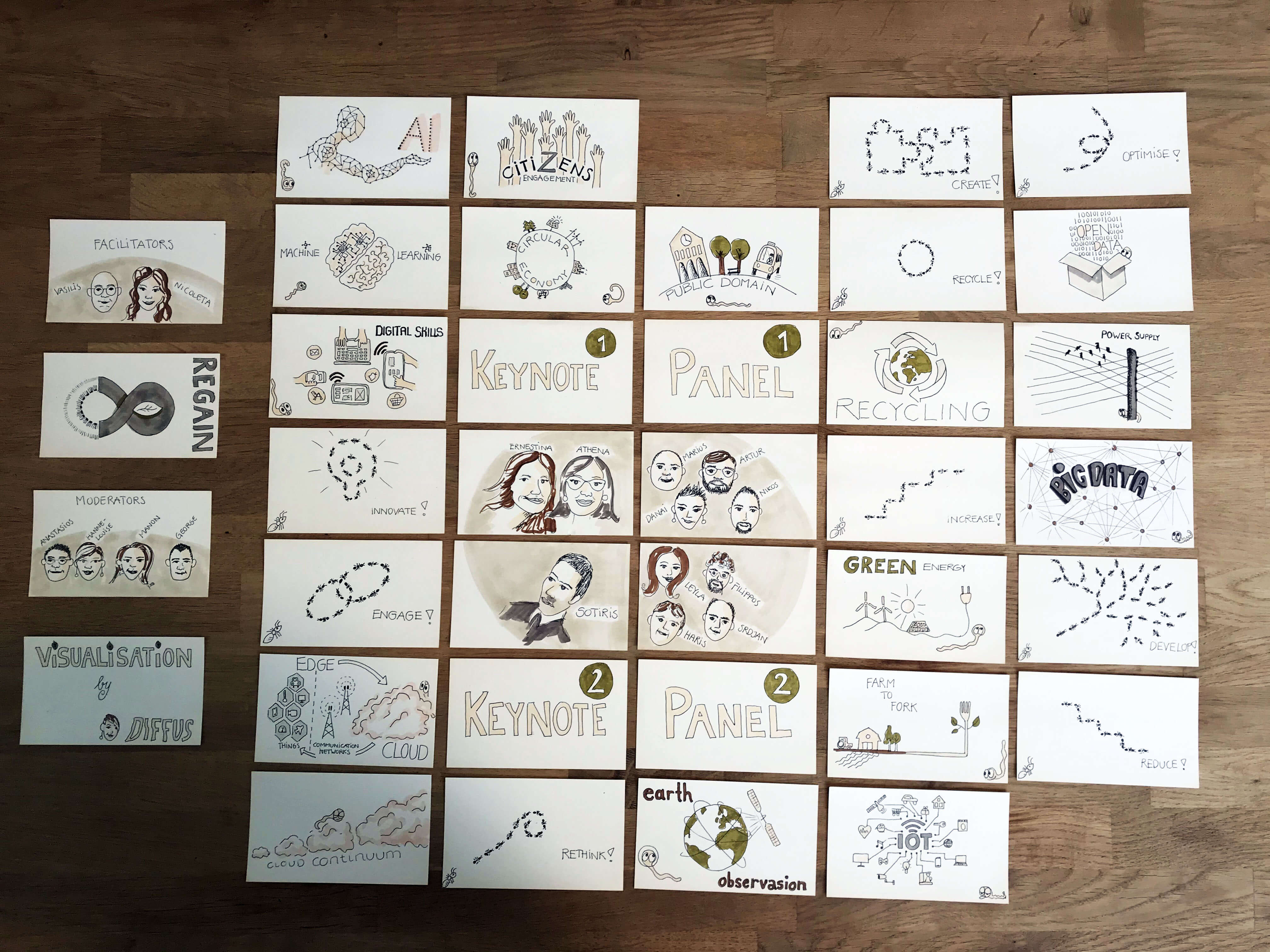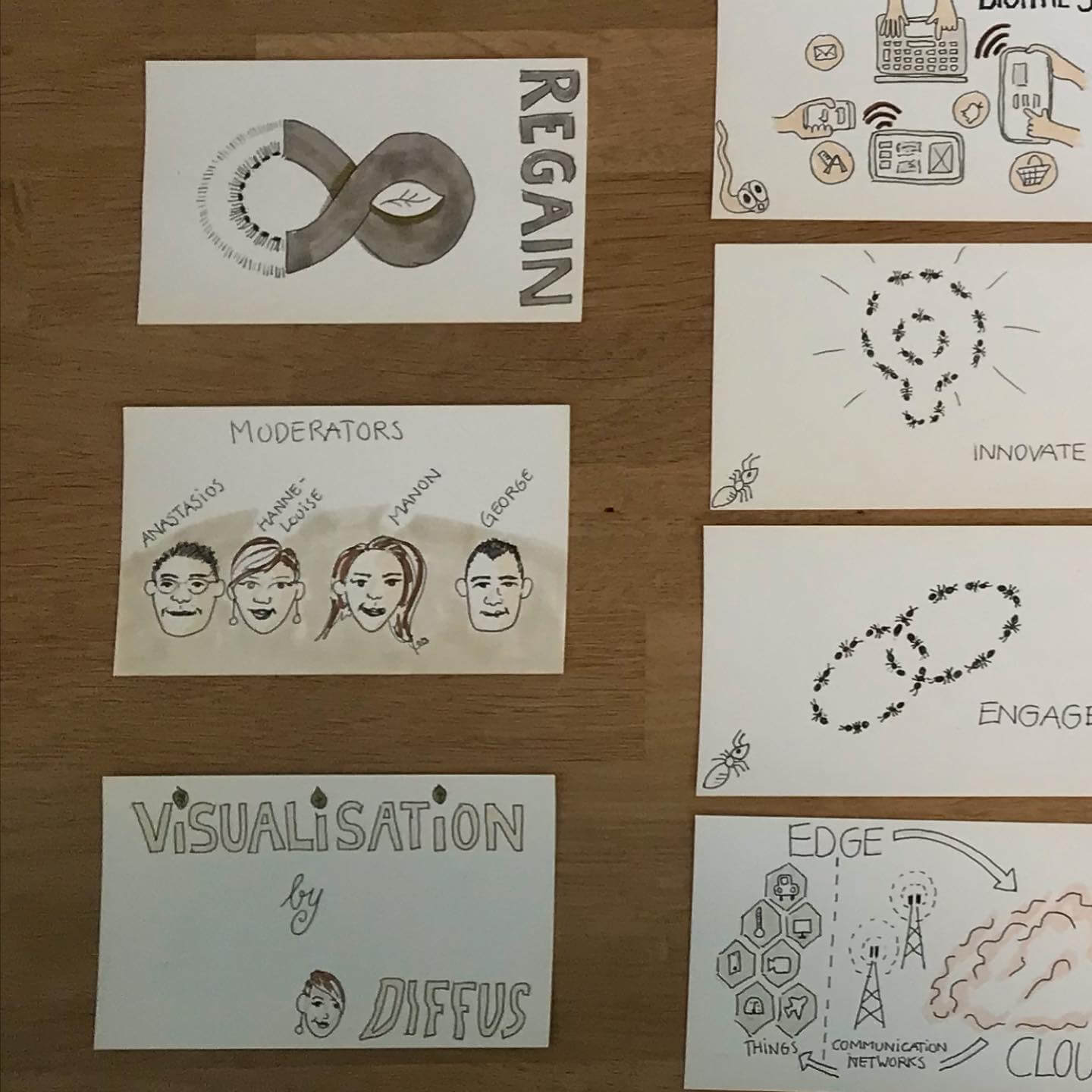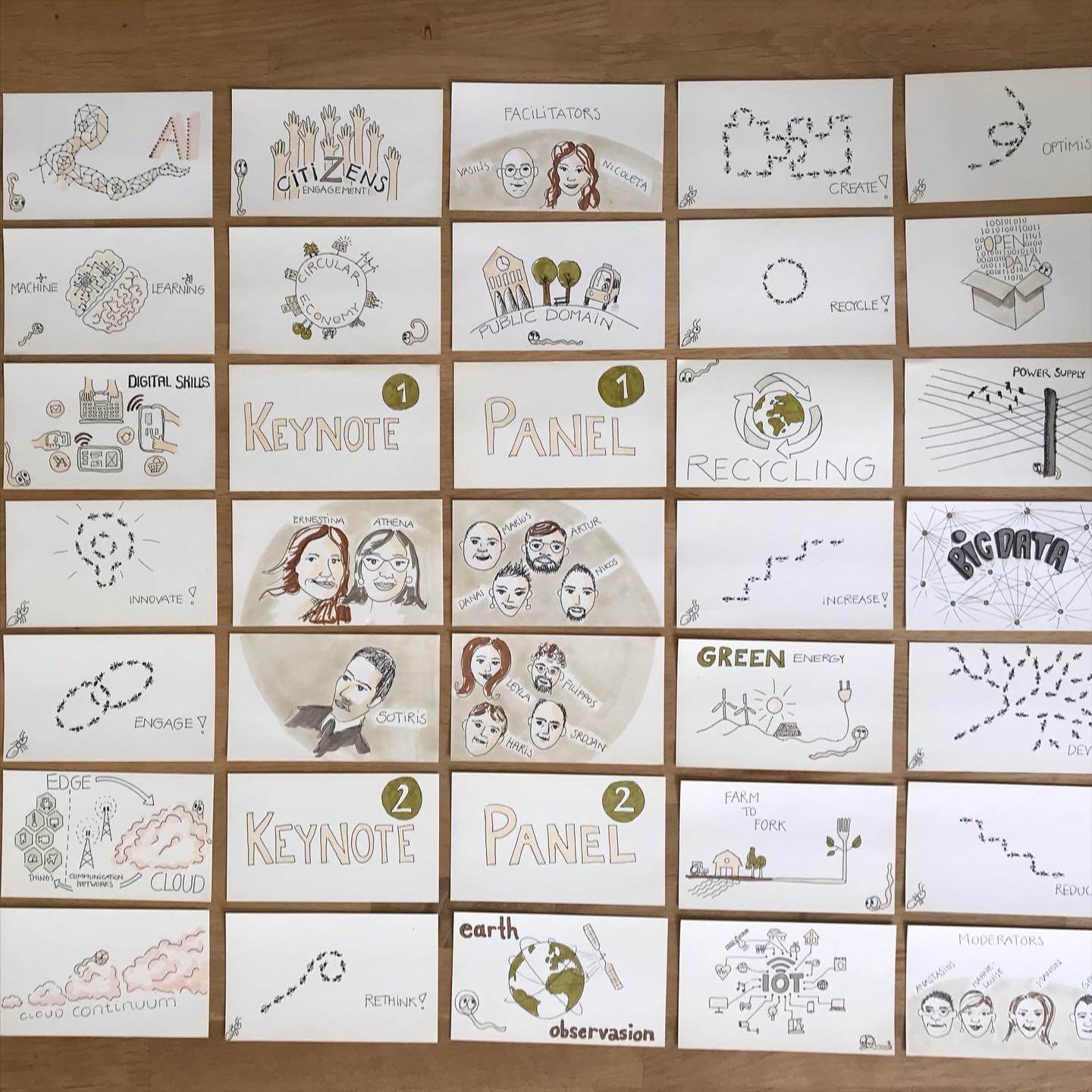REGAIN Synopsis
In response to the transition from the traditional economic model (take-make-consume-waste), which thrived during the industrial revolution, to the circular economic model which is based on the reuse of resources (e.g., products, materials), the regeneration of natural systems and aims to reduce waste and pollution, we organised this workshop. Traditional industry sectors experience a Big Data & AI transformation and their workforces have to adapt.
As the world becomes increasingly digitalised, demand for data centre services is rising rapidly. Global internet traffic tripled and data centre “workloads” (a measure of service demand) more than doubled. However, rapid improvements in the efficiency of servers, storage devices and data centre infrastructure, as well as a shift away from small, inefficient data centres to larger and more efficient cloud and hyperscale data centres have helped to limit electricity demand growth.
As an example, a sophisticated telecommunications network based on LoRa (Long Range), a low-power wide-area network modulation was established by the American Farm School in primary production facilities to support a key sector for the Greek economy. This network offers capabilities for digital interconnection and remote monitoring of primary production, standardisation and processing facilities, as well as transport activities, providing an important step forward to all those involved in the agri-food and supply chain.
Technologies like the Internet of Things (IoT), computer vision, and blockchain digital ledger technology (DLT) have also been exploited by Montenegro to contribute to the digital transformation in supply chain with the focus on product traceability. Food safety and food supply chain applications of these technologies proved to improve end-to-end visibility and tracking and tracing food products through their lifecycle.
Recent advancements in data-driven decision making and performance analysis can also provide another sector, the wastewater treatment industry, with an opportunity to reduce costs and improve operations. Optimization of wastewater techniques, reduction of the environmental footprint and improvement of wastewater derivatives, are direct gains while new commercial opportunities and business models can also be created.
The practice of big data collection mentioned above definitely raises concerns over access and security. However, the ability to conduct large scale and big data-oriented research strongly depends on a key factor, the availability of data. Insights provided through open data, can improve the decision-making on the efficient use of resources since data can help predict certain trends (e.g., market, weather, demographics) of future supply and demand. Consequently, public entities and organizations should be encouraged to share their valuable data, while respecting user privacy, possible trade secrets, and intellectual property.
The importance of novel and advanced data sharing and data analytics methods in the cloud continuum - from edge, to the fog and to the datacentre - was also highlighted for the transition to circular economy models. These technologies can provide additional value to data owners & data users by offering high availability of data, security and trust properties in data handling but also low latency processing and data-driven intelligence.
Earth observation data and services, which present many Big Data & Data Analytics challenges, was also showcased how they can disrupt agriculture and the overall food value chain, a very critical sector for circular economy.
The basis of a circular economy is a zero-waste society, where everything that we produce and consume can return safely to nature or society. The concept of zero-defect and zero-waste production should be embraced across all countries. But to facilitate its implementation we will need appropriate strategies and technologies adopted as well as policies and standards to be implemented. Towards this direction, we listened to how PlasticTwist aims to re-evaluate plastic waste and consider it as a valuable asset for the development of innovative products and services that will allow its re-entrance into the economy instead of filling landfills and our oceans.
Its clear that we need data-driven intelligence and data-driven culture to support the transition into smart sustainable Circular Economy business processes. Data Science and AI drives the emerging skills needed by both industry and society at large. However, there is a skills gap when it comes to data and AI. We need not only to train IT professionals but also, we need to train interdisciplinary experts and ensure non-expert users have a basic understanding and awareness of AI systems and how they operate. We require organisations that connect the supply and demand for AI assets and researchers that investigate new algorithms, hardware, technologies, methodologies and business models. The involvement of all stakeholders, including citizens, that are part of the circular value chain has been identified as a key success factor to this transition.
REGAIN Presentations
Download all the available REGAIN Workshop's presentations by clicking the corresponding title.
REGAIN Artistic Intervention
During the REGAIN workshop an artistic intervention, aiming to generate energetic audience empathy, also took place. Mrs Hanne-Louise Johannesen from Diffus Design, Denmark, a designer, artist, writer and active member of the REGAIN team, sketched in her own creative way what was discussed and presented, thus providing a very unique and insightful visual stimulation for our audience!







